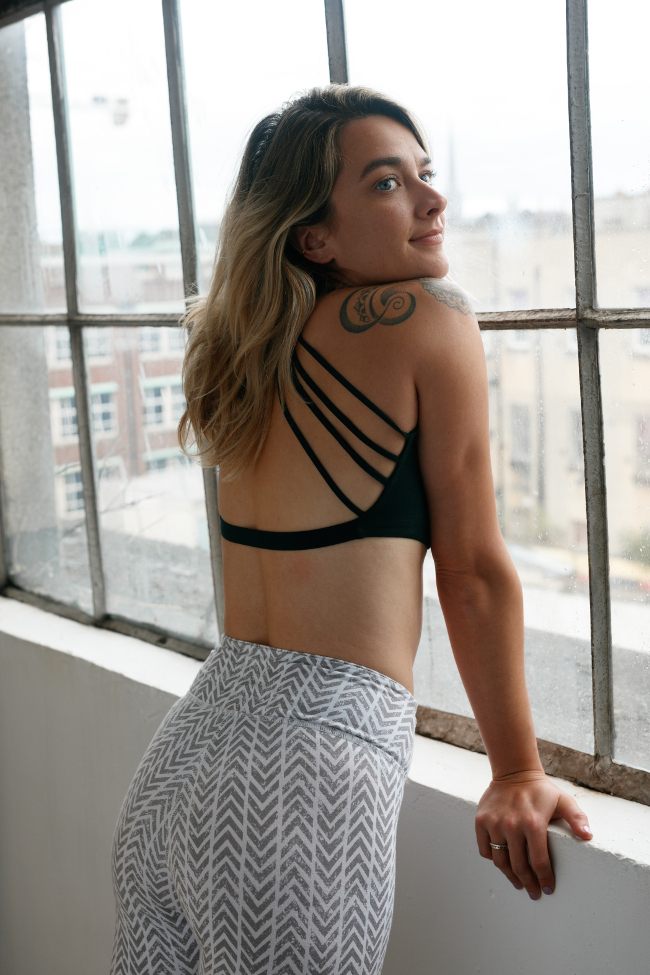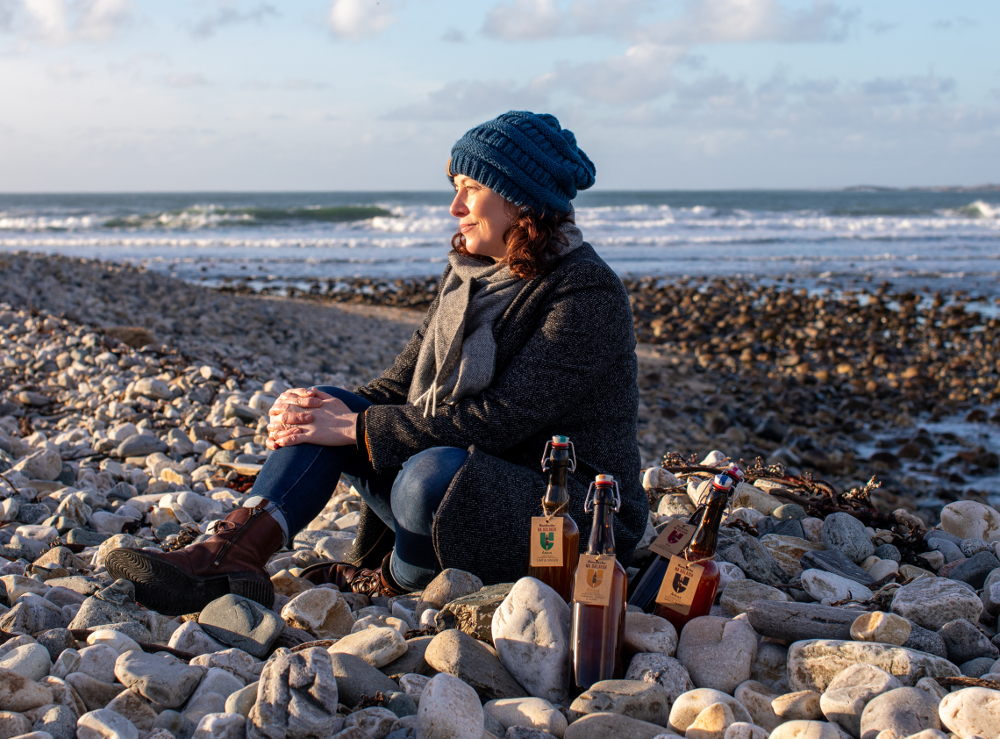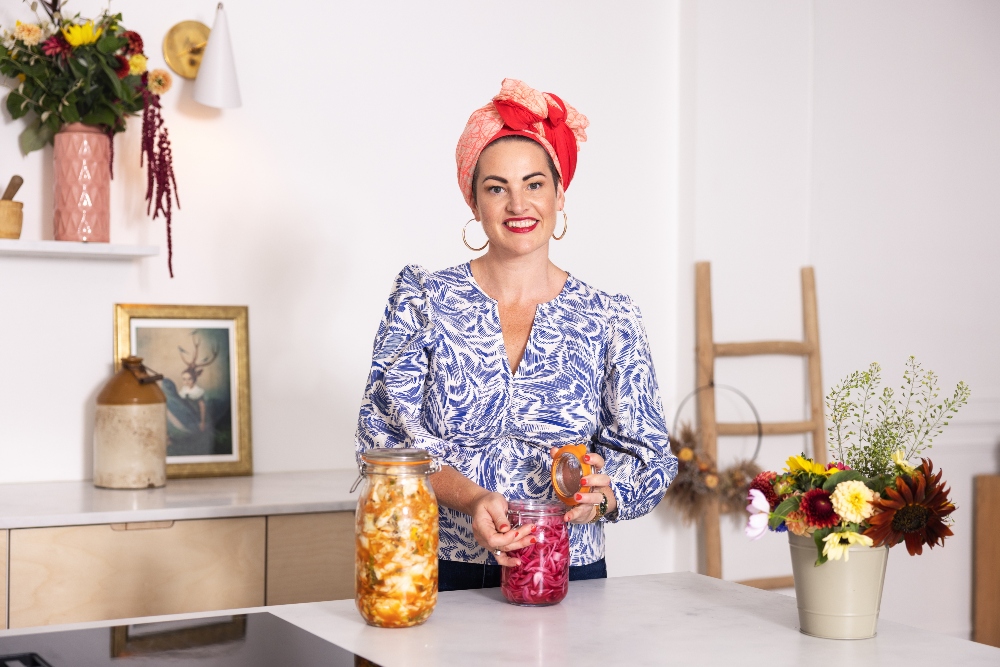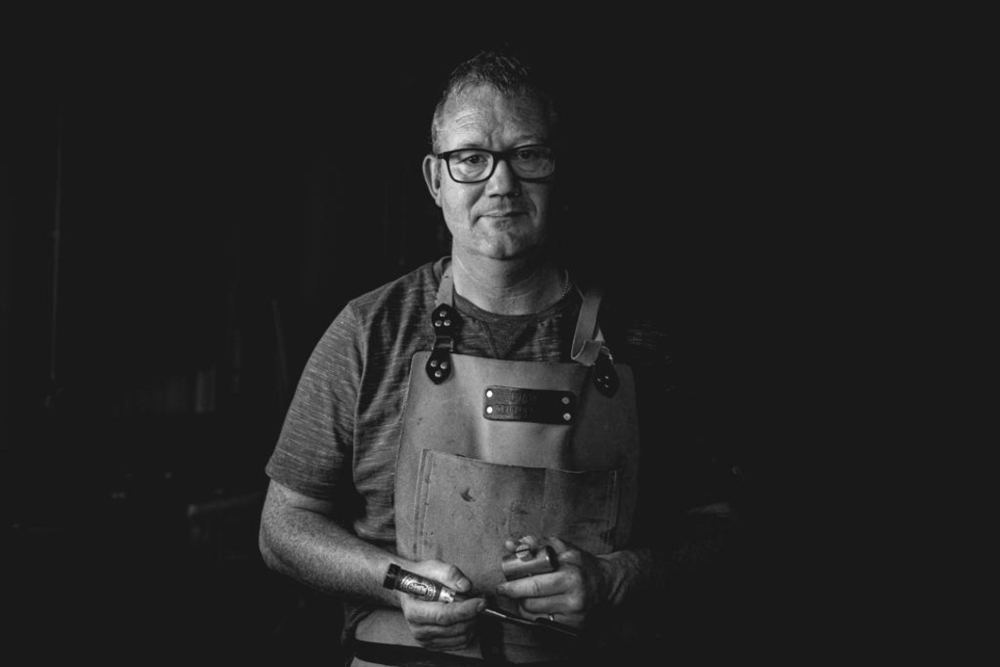A trip to India inspired Cork woman Emylou Hurley to set up her own sustainable yoga wear company Organic Movement.
Organic Movement founder Hurley talks to us about the importance of aligning business with core values, something which led her to relocate to rural Portugal and pivot her business to suit her passions.
“At the beginning I wanted to get my leggings made in Ireland, but because I would have been outsourcing it to another Irish business, there wasn’t any support available”
Why did you set up Organic Movement?
When I visited India for the first time I realised how much I love yoga. Because of the heat there I practiced yoga wearing loose cotton clothes. When I came back to Ireland, my polyester leggings felt so uncomfortable. That coincided with watching a documentary called The True Cost, which exposes the fashion and garment industry and asks us to consider who really pays the price of our clothing choices. I wanted cotton leggings for yoga and I really wanted them to be ethnically made and organic. I looked online and there was nothing like that available in the Irish market, so the business came about really naturally.
I found my first supplier who had stock of fairtrade organic cotton made in India. I used her stock and I created a brand. I started off really small and did a Christmas market in Ballymaloe in Cork. The reaction was good and encouraged me to keep going. Then I found another supplier that I worked with for four years, the stock was ethically made in Bali.
“If I could improve anything in the whole system, it would be to inform people of what’s actually available. There are so many grants that people aren’t aware of”
What makes Organic Movement stand out?
The leggings are made from cotton rather than synthetic materials. They’re so much more comfortable. Your skin can breathe freely and they’re really good for people with skin issues, which more and more people are developing.
What challenges did you meet and how did you overcome them?
Doing everything on my own is hard. Learning to trust myself took some time. But I’ve come so far in terms of gaining confidence putting yourself and my brand out there. What really helped at the beginning especially was talking to other people in similar businesses. It really helps knowing there’s somebody who’s experienced similar challenges, it puts everything in perspective. I met lots of people through events and markets and made connections that way.
I set up the business just before the pandemic so I was constantly in adapting mode. Importing stock from Bali during the pandemic was challenging; waiting for stock to turn up was very hard. At one point, nothing was being produced and I missed out on a couple of months’ worth of sales. But I kept my social media active and took orders for when the stock was due to arrive. It was a tough time.
Two years ago I moved to Portugal. I wanted to stop importing cotton from Bali and to work with factories that were closer to me. Moving here was spontaneous; renting is cheaper here, I could continue my business and be more connected with suppliers because I could travel to factories frequently. But after a while I realised this wasn’t aligning with my values. The whole idea behind my business was to support an artisan group in India or Bali to make my clothes and not to have them mass produced in Portugal. It just didn’t feel right. So even though the reason I came to Portugal was to be close to manufacturers , I didn’t go that way in the end. The business is pivoting, I want to make my own products myself.
I learned to sew last year. I’m interested in natural dyeing using plants and food waste for the fabric dye. I’ve been exploring what products I can make from fabrics I dye naturally. With leggings the dye works differently because of the elastane and what happens to the threads so I am experimenting with other pieces like relaxation pillows for after yoga and meditation, as well as cushions. It feels more aligned with where I want to go.
“The business is there to make money but take a step back every now and then to ask yourself why you’re doing it”
What is the support for entrepreneurs like and how could it be improved?
There is a lot of support for tech start-ups but I really struggled getting a feasibility grant. I always hit walls. I’m in the retail category and there aren’t many grants for that. At the beginning I wanted to get my leggings made in Ireland, but because I would have been outsourcing it to another Irish business, there wasn’t any support available. There was no incentive for me to keep production in Ireland and I ended up going to Portugal where manufacturing is cheaper.
I went on the Back to Work Enterprise Allowance scheme, which was really brilliant. Getting it was difficult because I had to be unemployed for nine months before applying, which was hard because I didn’t want to be unemployed. A lot of people don’t know about the scheme. If I could improve anything in the whole system, it would be to inform people of what’s actually available. There are so many grants that people aren’t aware of. People in the different LEOs had different information and told me different things, it was very tough to navigate.
“At the beginning I gave a lot of stock away for free to influencers but it didn’t work for me. You have to be mindful of whether it’s right for you and not be afraid to say no”
What lessons have your learnt and what would you pass on to other businesses?
Stay true to yourself and your values. The business is there to make money but take a step back every now and then to ask yourself why you’re doing it. That was really important for me to ask myself.
It’s hard when you start a business because you’re always hearing about doing things that are good for brand awareness and while I think that’s great, you have to be calculated in what you try. At the beginning I gave a lot of stock away for free to influencers but it didn’t work for me. You have to be mindful of whether it’s right for you and not be afraid to say no.
What is your proudest moment?
When I see people wearing my leggings, I feel really proud. Doing the pop-up shop on Grafton Street was something I wanted to do from the beginning and to be invited to do that was brilliant. I was shortlisted for Pitch 2022, which is run by Arnott’s. I got to go and present my designs, I thought I was going to be nervous, but I loved it.
“I want to create my own dye garden for naturally dyeing fabric. I want to fuse the business with my newfound passions of being more involved with nature and the outdoors”
What are your plans for the future?
To be more hands on and creative. Now I live like in the countryside in Portugal, where I want to create my own dye garden for naturally dyeing fabric. I want to fuse the business with my newfound passions of being more involved with nature and the outdoors. I’m creative but that part of me was pushed aside a before. I didn’t have the confidence to let it out but I do now.






